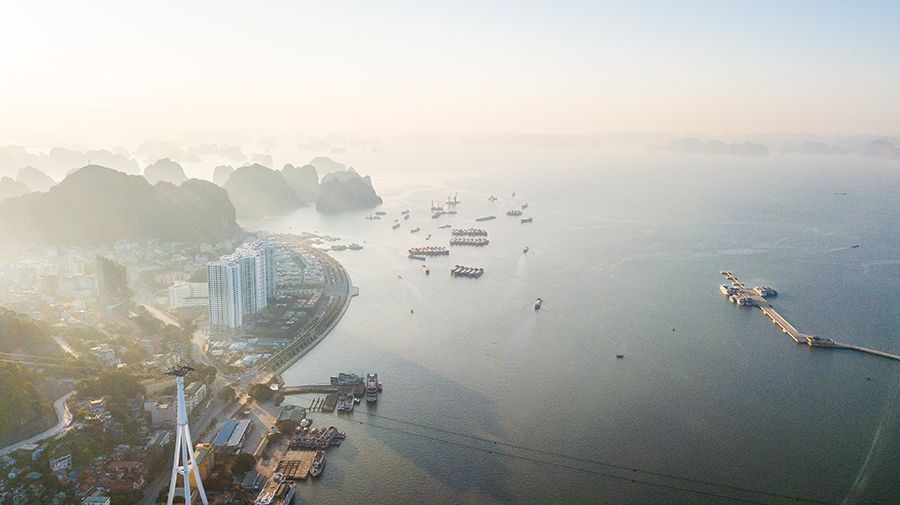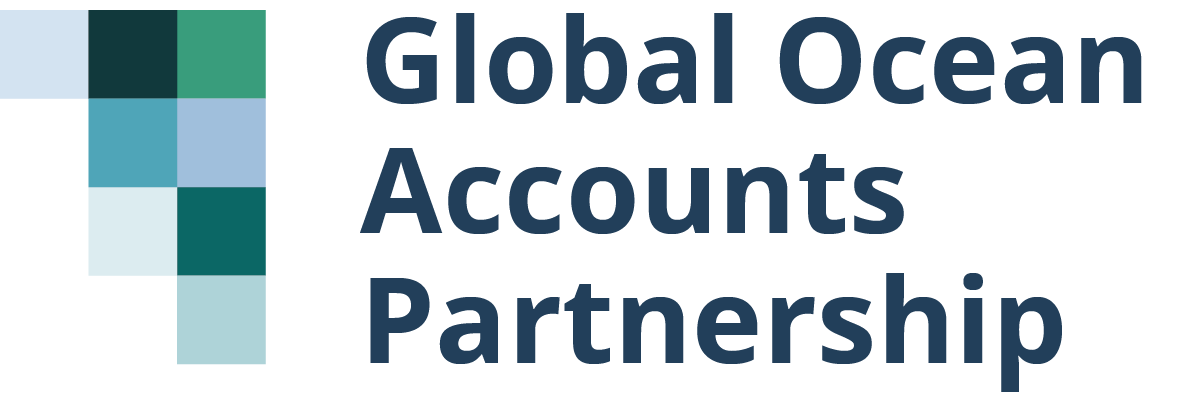Ocean accounts inform evidence-based sustainable development of the ocean economy

The ocean
The ocean is one of our most precious assets. Our health is linked to the health of our oceans and coasts, which are key to continued growth and prosperity.
Oceans are central to the livelihoods, health and survival of billons of people across Asia and the Pacific. However, the ocean is warming, acidifying and deoxygenating. Hotspots of biodiversity, such as mangroves, coral reefs and seagrass meadows, are under significant threat. An estimated one-third of all fisheries are over-exploited. As highlighted by the UN Decade of Ocean Science for Sustainable Development, we must work together to halt and reverse the damage inflicted on our shared oceans.
Countries dependent on coastal and marine tourism have seen coastal livelihoods threatened by the COVID-19 pandemic. As countries race to respond and recover, we must go beyond ‘business as usual’ to ensure a ‘Blue Recovery’, to preserve ocean ecosystems for current and future generations. To achieve this, it is imperative that we have an integrated and globally recognized way to measure and manage our oceans for a more sustainable future.
Towards a ‘blue recovery’ for the ocean economy
The ocean holds untapped opportunities to deliver medicines, food security, fuel and new materials, with the potential to revitalize economic growth post-COVID-19. However, the capacity of the ocean to support the growing intensity and diversity of ocean activities is increasingly uncertain. To manage conflicts within an increasingly crowded ocean, planning for the ocean economy requires an understanding of ocean-related sectors and the dependencies of these economic activities on ocean space and resources. There is also a need to better understand how ongoing and proposed economic activities may impact coastal and ocean ecosystems.
Measuring the ocean economy is a significant challenge due to the way we currently measure economic activity. Data aggregation masks the significance of many ocean sectors. For example, the specific contribution of coastal and marine tourism to the economy is often lost within the broader category of general tourism. Another challenge is defining which ocean-related sectors to include and how to include them. Shipbuilding, for example, is a pillar of the ocean economy, but uses neither ocean space nor resources.
We also need to measure the impacts of different human activities on ocean ecosystems to understand the sustainability of the ocean economy, as mentioned in the Roadmap for the UN Decade of Ocean Science for Sustainable Development. The transition from prioritizing ‘blue growth’ to focusing on a sustainable ‘blue economy’ is reflected in national policy (for example, Fiji’s Ocean Policy and Indonesia’s whole-of-government approach to ocean management) as well as transformative international agendas, such as the commitments by the 14 members of the High Level Panel for a Sustainable Ocean Economy (Ocean Panel)(which includes Asian and Pacific countries such as Australia, Fiji, Indonesia, Japan and Palau).
Sustainable ocean planning
Ensuring healthy and resilient oceans needs comprehensive planning. Sustainable Ocean Plans, as defined by the Ocean Panel, are the foundation for a sustainable ocean economy. These plans contain mechanisms such as regulatory reform, marine spatial planning, integrated coastal and watershed management, and the establishment and implementation of marine protected areas and other effective area-based conservation measures that can help deliver nature’s contributions to people. Such plans also address the pressures from land- and sea-based sources and take account of the predicted impacts of climate change.
Ocean accounting is a data foundation towards an integrated understanding
Forming a Sustainable Ocean Plan requires an integrated understanding of the relationships between ocean ecosystems, society and the economy. However, ocean knowledge and data are fragmented across sectors and institutions, where a lack of standardization limits the ability to collate data in a coherent and transparent manner. Ocean accounts provide a solution to this challenge, with an integrated approach and framework that aligns with existing data structures maintained by national statistical offices and finance ministries. Ocean accounting is aligned with and extends existing international accounting standards, such as the System of Environmental Economic Accounting (SEEA) and System of National Accounts. It enables countries to go Beyond GDP to measure the contribution of the ocean economy towards sustainable development goals.
Many accounting definitions, classifications and methods need to be developed and refined for the ocean domain. To address this need, the Global Ocean Accounts Partnership (GOAP), co-chaired by the ESCAP and the Department of Fisheries and Oceans, Canada, provides a coordination and communication platform to share experiences and lessons learned in developing ocean accounts. Through this platform, GOAP will work with the UN Statistics Division to further develop the technical foundation for ocean accounting in line with the SEEA; a task requested by the UN Statistical Commission at its 2020 and 2021 sessions.
Ocean accounting for sustainable development of the ocean economy
Integrating data from the social, environmental and economic domains is vital for sustainable development. Ocean accounts provide a means to overcome the fragmentation of ocean data, offering a structure to collate data in a coherent and transparent manner. Countries can leverage ocean accounts to measure, manage and develop the ocean economy in an inclusive and sustainable way. With rapidly expanding data on the oceans and ever-increasing acknowledgement of their importance to our well-being, now is an exciting time to use ocean accounting to chart a new course toward sustainability.
Authors: Rikke Munk Hansen, UN ESCAP; Anthony Dvarskas, UN ESCAP; Jordan Gacutan, GOAP Secretariat, Nina van Ewijk, GOAP Secretariat

